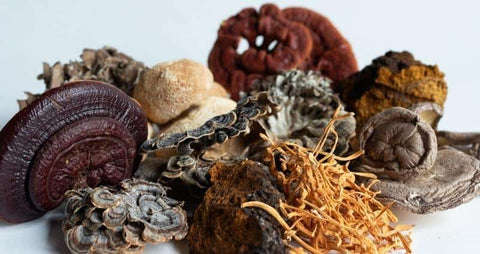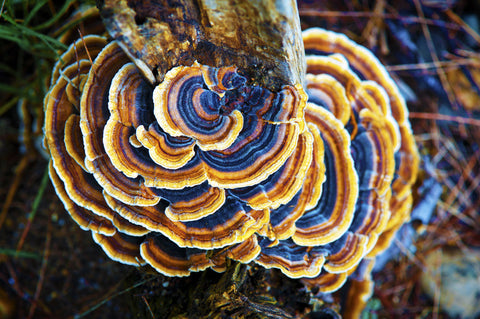Introduction: Mushrooms are more than just a pizza topping or a peculiar woodland curiosity. These fungi, often overlooked, have been cherished for their culinary, medicinal, and ecological significance for centuries. As we delve into the depths of mycology (the study of fungi), it becomes clear that mushrooms offer an array of benefits that profoundly impact our lives. In this blog, we'll explore the magical world of mushrooms and how they positively influence our well-being.
-
Nutritional Powerhouse: Mushrooms are a nutritional treasure trove. They are a great source of essential nutrients like vitamins (B vitamins, vitamin D, and vitamin C), minerals (selenium, potassium, and copper), and dietary fiber. Moreover, mushrooms are one of the few non-animal sources of vitamin D, making them valuable for vegetarians and vegans.
-
Immune Boosters: Several mushroom varieties, such as shiitake, reishi, and maitake, contain compounds like beta-glucans that stimulate the immune system. These compounds help our bodies fight off infections and strengthen our natural defenses against diseases.
-
Adaptogens for Stress: Reishi mushrooms are renowned for their adaptogenic properties, which means they can help the body adapt to stress. They have been used in traditional medicine for centuries to promote relaxation, reduce anxiety, and improve overall mental well-being.
-
Antioxidant Powerhouses: Mushrooms are rich in antioxidants, which help combat harmful free radicals in the body. Antioxidants like ergothioneine and selenium in mushrooms can contribute to reducing the risk of chronic diseases and slowing down the aging process.
-
Gut Health: The fiber in mushrooms, along with their prebiotic properties, can benefit gut health by promoting the growth of beneficial gut bacteria. A healthy gut microbiome is associated with improved digestion, better nutrient absorption, and even enhanced mood.
-
Environmental Heroes: Mushrooms play a vital role in ecosystems by breaking down dead organic matter. They help recycle nutrients and contribute to soil health. Some species are even used to clean up environmental pollutants through a process called mycoremediation.
-
Sustainable Food Source: Mushrooms are highly sustainable to cultivate, requiring minimal resources compared to traditional livestock farming. They can be grown indoors, in controlled environments, and even from agricultural waste products, reducing the carbon footprint associated with food production.
-
Culinary Delights: Mushrooms offer a diverse range of flavors and textures, making them a favorite among chefs and home cooks alike. From the meaty portobello to the delicate chanterelle, mushrooms add depth and umami to a wide variety of dishes.
-
Medicinal Potential: Beyond their culinary and nutritional value, mushrooms have shown promise in medical research. Compounds found in mushrooms are being studied for their potential in cancer treatment, reducing inflammation, and managing various health conditions.
-
Cultural and Spiritual Significance: In many cultures, mushrooms hold cultural and spiritual significance. They have been used in rituals, ceremonies, and traditional medicine for their perceived mystical and healing properties.
Conclusion: Mushrooms are not just a diverse group of fungi; they are a hidden treasure trove of benefits for our health, the environment, and our culinary experiences. Whether enjoyed on a plate, used as a supplement, or explored in the wild, mushrooms continue to amaze us with their versatility and contributions to our lives. So, the next time you see a mushroom, remember the magic it brings to our world, from nutrition to healing, and even to our taste buds.




Comments (0)
There are no comments for this article. Be the first one to leave a message!